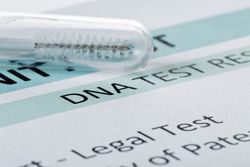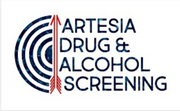5 Myths About Paternity Testing You Shouldn’t Believe

Whether you’re trying to fill in your family tree or establish legal parenthood, DNA paternity testing can provide the clear results you need. Processed by a qualified lab, these tests compare DNA samples from the child and potential father to identify shared genetic markers. But while this practice has been relied on for decades for different purposes, many still have doubts about the process—and the accuracy of the results. If you’re curious about this topic, here are five common myths about paternity testing and why you shouldn’t believe them.
What Are Common Misconceptions About DNA Paternity Testing?
1. Children Must Be Born to Provide a Sample
Expecting individuals may want to verify paternity to make family decisions or get a head start on child support needs. Still, many will put it off, believing that they won’t be able to take the test until the child is born. But thanks to modern advancements, it is possible to safely collect and accurately assess a baby's DNA during pregnancy.
2. The Father Needs to Provide a Sample
In general, it’s best to get a DNA sample from the suspected father. But if he isn’t available or unwilling to provide a sample, there are still other ways to prove the relationship. For example, you might be able to compare DNA between the child and the man’s parents to see if there are enough similarities to suggest grandparenthood.
3. Processing Takes Too Much Time
While some screening procedures may involve long processing times, DNA paternity testing is fairly quick. Most facilities can provide results within a few days of receiving the sample. Some may even offer expedited processing if there is a time-restricted need for the information.
4. Results Provide Iron-Clad Legal Evidence
 While it’s true that paternity test results can help prove parenthood for child custody and child support matters, it may not always be the only evidence you need. In most cases, courts will consider qualifying test results in conjunction with other factors to establish parental rights and responsibilities.
While it’s true that paternity test results can help prove parenthood for child custody and child support matters, it may not always be the only evidence you need. In most cases, courts will consider qualifying test results in conjunction with other factors to establish parental rights and responsibilities.
If you’re curious about using these results in an upcoming case, consult with your attorney to determine the potential of a paternity screening—and what type of test is needed to be considered valid.
5. They’re Expensive
When people think about genetic testing, they often picture services that are reserved for the wealthy. Although paternity tests may have once been inaccessible and costly, they are so prevalent and dependable that most can be purchased for a negligible fee.
When you need reliable DNA paternity testing in Eddy County, NM, turn to Artesia Drug & Alcohol Screening. Backed with state-of-the-art lab resources, this team of experienced professionals will guide you through every step of the testing process to ensure you get accurate results in a confidential and comfortable fashion. To learn more about their genetic, drug, and alcohol testing services, visit this provider online. If you’d like to arrange a screening, call (575) 746-3404.
About the Business
Have a question? Ask the experts!
Send your question

